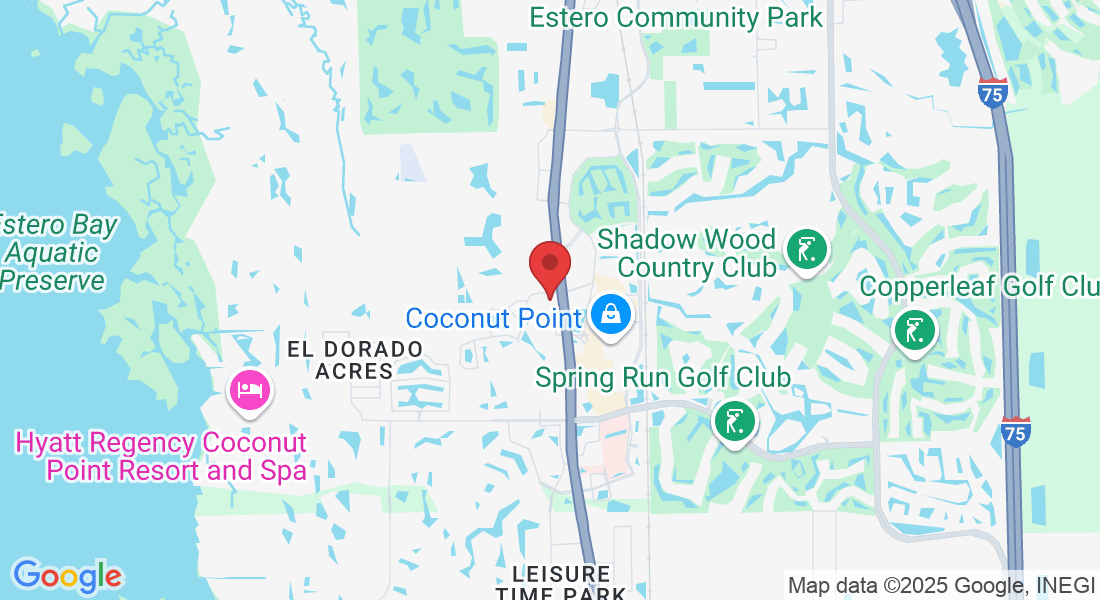Call Us: (239) 427-1455
This site is for families seeking memory care services. For employment inquiries, visit our Indeed page.
Redefining Memory Care In Estero Florida
Choosing the right memory care community for a loved one is a deeply personal decision. At Gulf Coast Memory Care, conveniently located next to Coconut Point Shopping Center in Estero, Florida, we've created a haven of tranquility where residents can experience a luxurious and comfortable lifestyle. Let us help you make this important decision with confidence.
Understanding The Benefits Of Memory Care
Hear From Jen
We believe that exceptional care begins with open, honest, and ongoing communication. Families have direct access to our leadership and caregivers, including personal cell numbers, because staying informed should never be a struggle.
Every resident also receives a personalized care plan tailored to their needs, so families always stay connected.
Is It The Right Time For Memory Care?
Understanding that memory care is not a one-size-fits-all solution, we prioritize personalized care plans that adapt to each individual’s progression.
Learn more about senior care and get personalized results in this quick 5 minute survey.
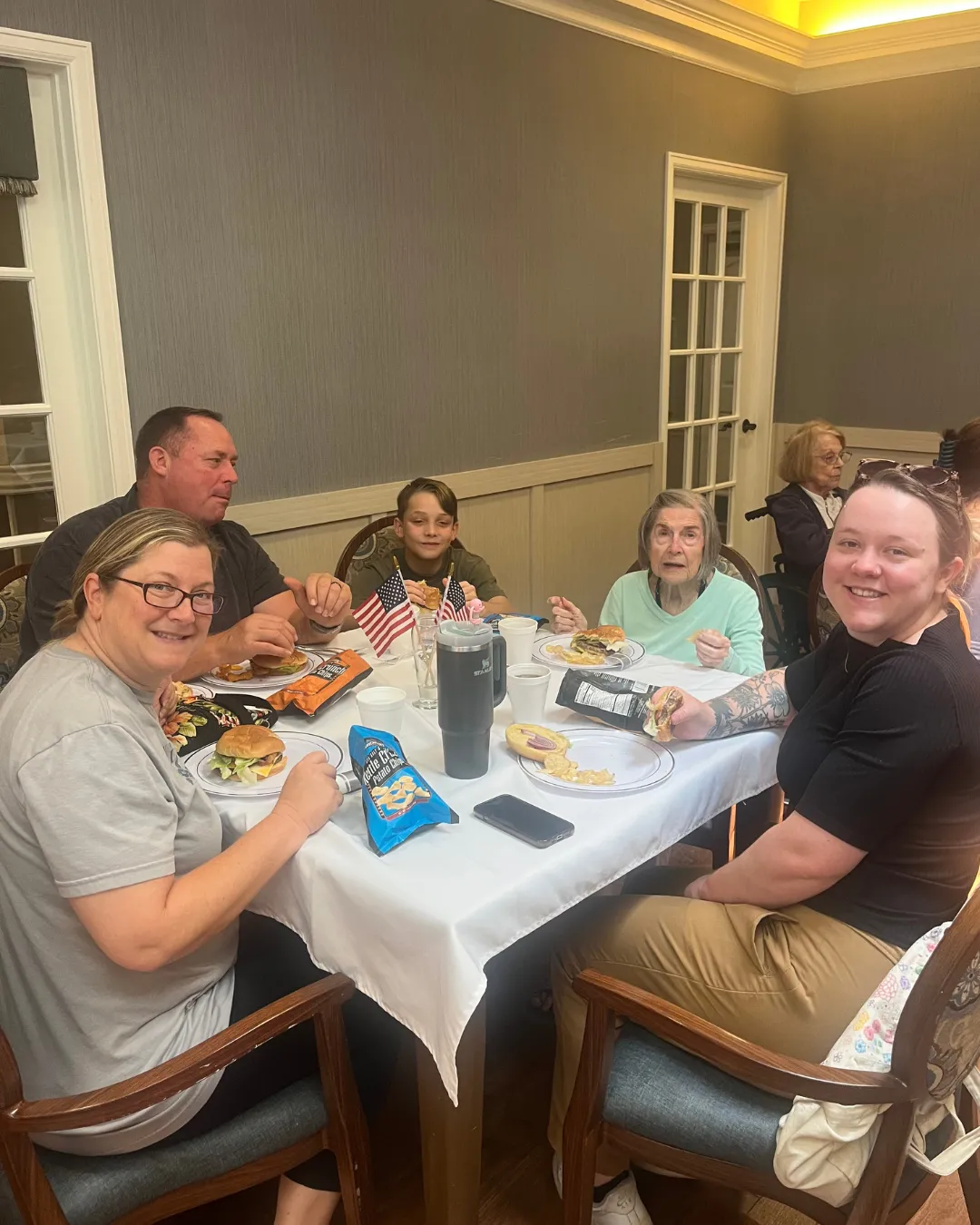
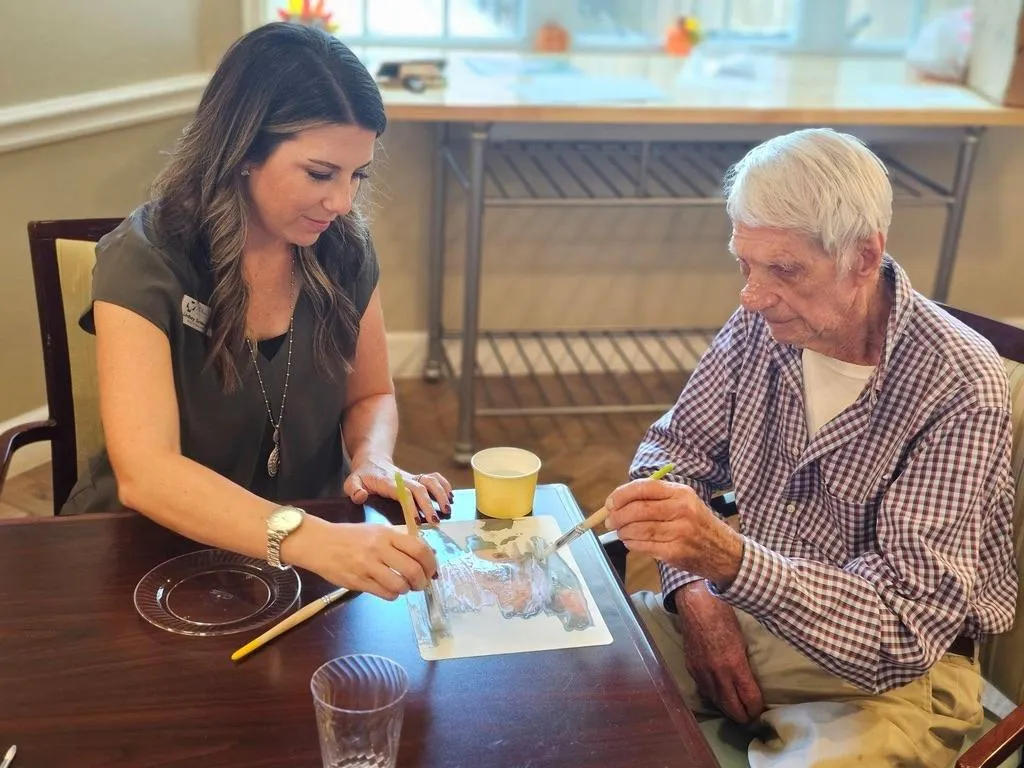
A Community For Alzheimer’s & Dementia Care
Families seeking Alzheimer’s and dementia support in Estero, Florida, can rely on our compassionate team for a community that truly cares.
Through ongoing training in the latest memory care practices and a commitment to safety, Gulf Coast Memory Care offers peace of mind for families and the highest standard of care for residents.
Love From Our Families


My mom moved into her new home a few weeks ago. I was able to visit with her this week while being in Florida and my gosh, I know she is right where she needs to be. Huge shoutout to Jerry, Diana, Paula, Kathy and Apryl. You are real life angels. The energy you bring is above and beyond. To see how you interact with not only my mom, but all the residents, it truly warms my heart. While it is heartbreaking to see my mom battle Alzheimer's, I know she is in the perfect place. She is safe and receiving the care she needs. <3 The place is clean, accommodating and most importantly feels like home. I love that there is a schedule and many activities for the residents to participate in. My mom has loved the painting and coloring
- Bill & Bonny B

Shelly Richardson

Upon entering this beautiful community, I was deeply impressed by the exceptional level of care and compassion demonstrated by all the caregivers. Every member of the team, from maintenance staff to the executive director, significantly contributes to the residents' quality of life. The interior courtyards offer a safe and beautiful outdoor escape for the residents, while the dining area is both elegant and spacious. GCMC stands out as one of the premier memory care centers I have ever visited.
- Bill & Bonny B


Exceptional dedication. Genuine care 24/7, everyone is doing a great job, from Management to the care team. Jerry and Diana are conducting the business, but you can see them walking the hallway and chatting with the residents, literally knowing everyone. There is an engine who works behind the scenes to have the day and night activity running smoothly. Family feeling, warmth, and genuine care, overall, 5 stars. Residents are never alone, there is always a pair of eyes to watch and hands ready to help as needed, but all is done in a certain way, so our loved ones don’t feel any loss of their independence. Beautifully done. The activities are not just lines on paper, everyone is involved. Food is first class.
- Bill & Bonny B
Our Senior Care Amenities
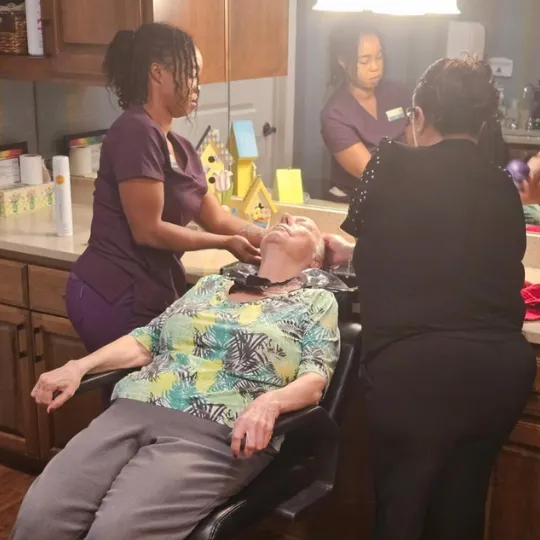
One-site beauty salon and barbershop
Personalized, chef-prepared meals
Customized activity programs
Craft and hobby room
Family living room
Full Library
Abundant natural light to minimize sundowning
Located next to Coconut Point Shopping Center
Award Winning Leadership


The Edison Suite

The Magnolia Suite

The Sugarberry Suite
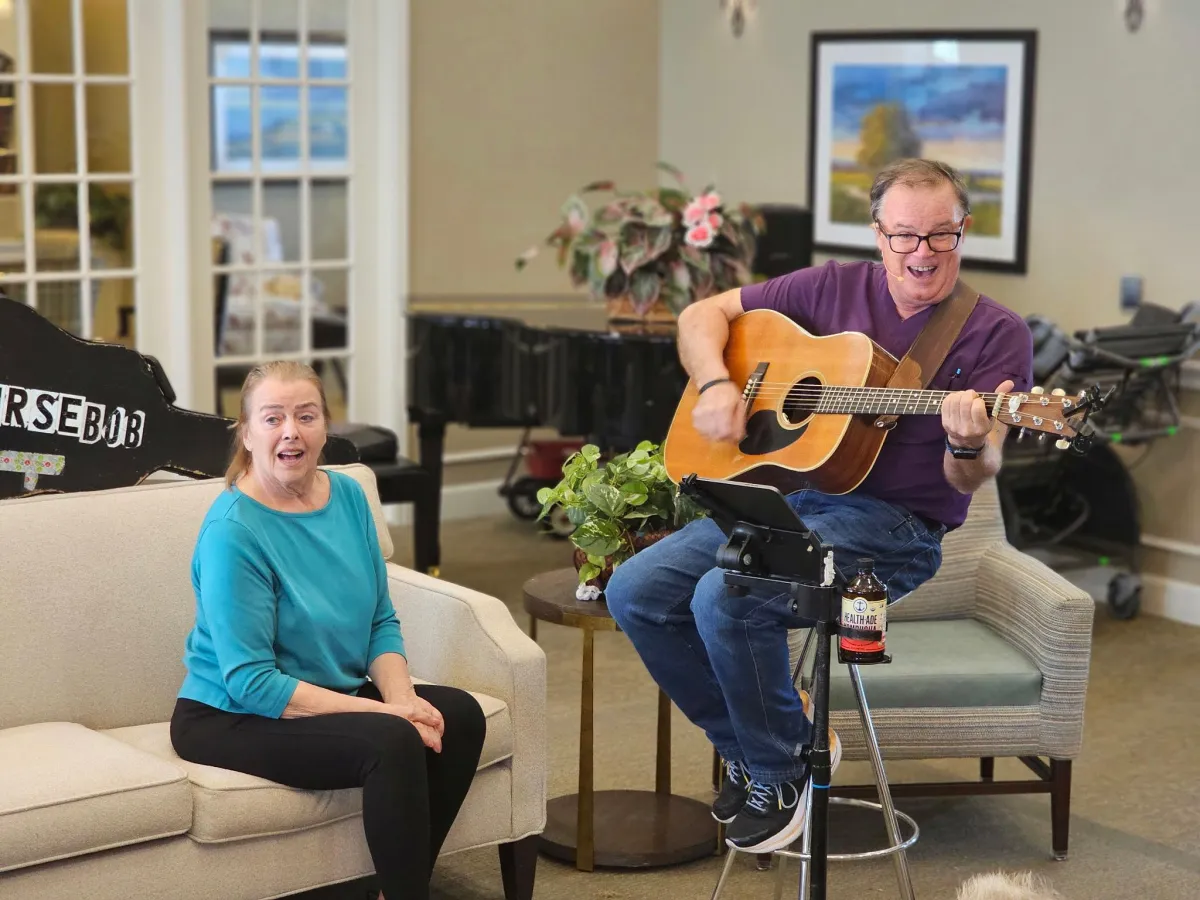
Engaging Residents With Meaningful Social Connections
We also prioritize activities that nurture both physical and mental wellness, from gentle exercise routines to social events that create a sense of community among residents. These carefully crafted programs are designed to boost mood, reduce anxiety, and encourage meaningful interactions, all of which contribute to a fulfilling lifestyle for those facing memory challenges.
Our Commitment To You
Our commitment extends to providing families with guidance and resources to understand memory loss and navigate the journey with confidence. Whether it’s through educational workshops or one-on-one consultations, we’re here to support families every step of the way, ensuring they feel connected and informed about their loved one’s care journey.
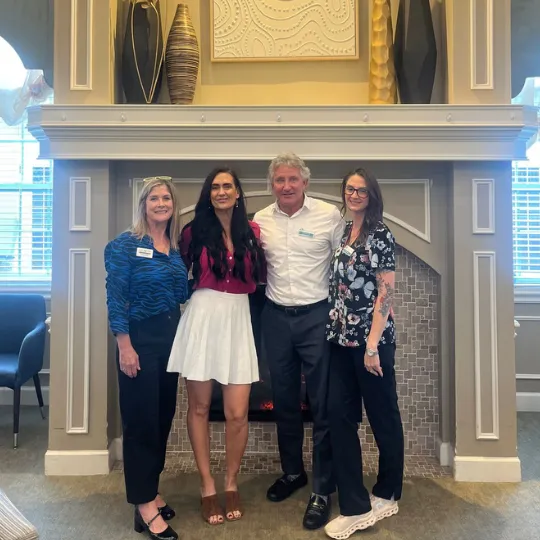
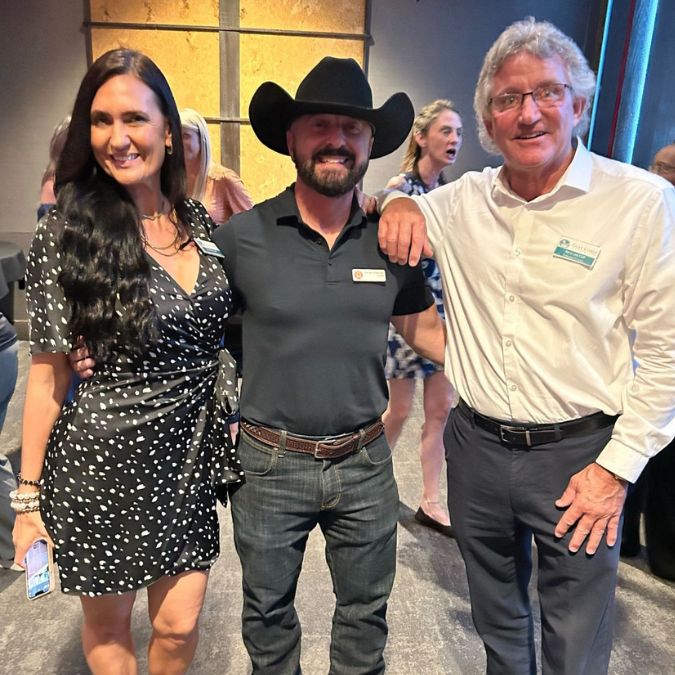
Trusted Partners in Senior Care
At Gulf Coast Memory Care, we believe exceptional care is built on collaboration. That’s why we partner with leading organizations across Southwest Florida—so you and your loved ones have access to a trusted network of support, resources, and expertise at every step of the journey.
Are You Ready To Get Settled In?
Embark on a transformative experience at Gulf Coast Memory Care in Estero, Florida. We're not just a memory care community; we're a sanctuary where the mind, body, and spirit are nurtured. If you're seeking a place where compassion, care, and a deep respect for the human soul are paramount, you've found the right haven.
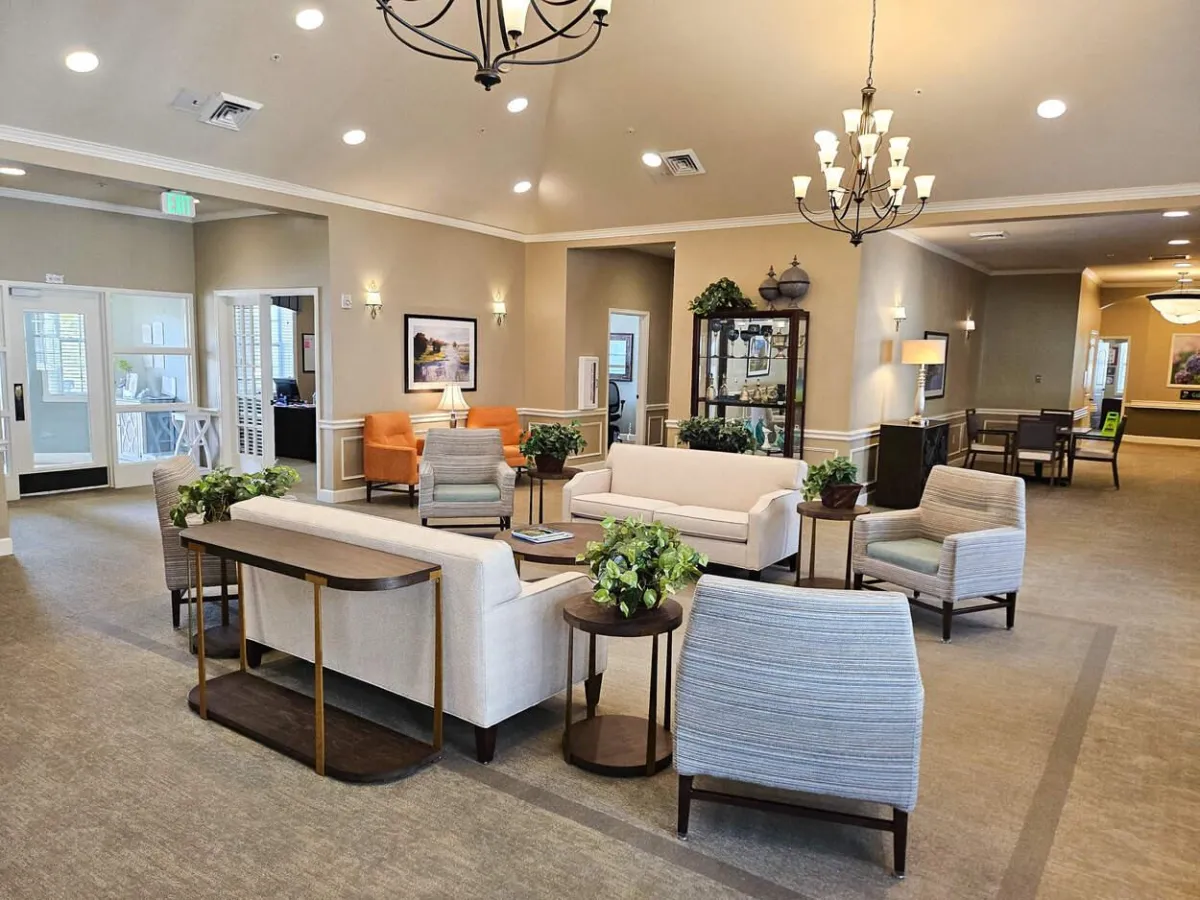
Check Out Our Blog
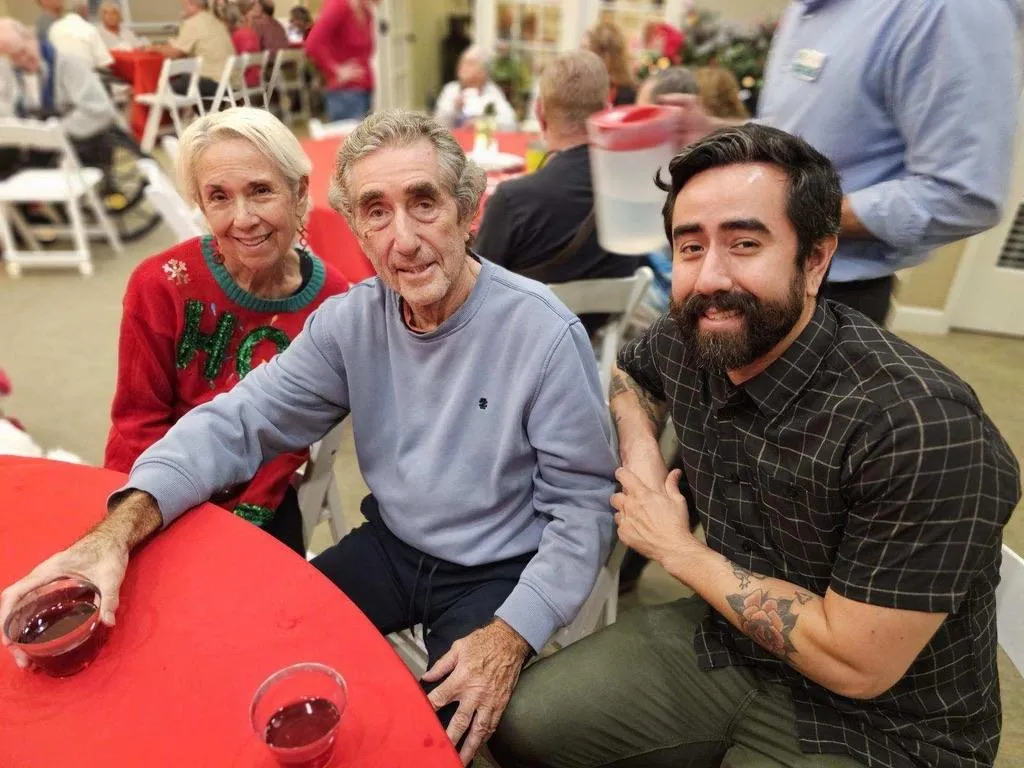
What to Expect from a Long-Term Care Plan: A Step-by-Step Guide
Planning for long-term care can feel overwhelming, especially when you're balancing medical needs, financial considerations, and emotional concerns for a loved one. Whether you're exploring options for yourself or helping a family member, having a well-thought-out care plan in place can make all the difference. This guide will walk you through the essential steps of creating a long-term care plan that prioritizes comfort, dignity, and peace of mind.
Why Long-Term Care Planning is Important
As we age, our needs inevitably change. For some, this may involve assistance with daily tasks, while others may require specialized support like memory care. A long-term care plan ensures that these needs are anticipated and addressed, reducing stress for both individuals and their families.
Step 1: Assess Current and Future Needs
The first step in creating a care plan is understanding the level of care required. Consider:
Daily living activities: Does your loved one need help with bathing, dressing, or eating?
Health conditions: Are there chronic illnesses, mobility issues, or cognitive impairments to plan for?
Social and emotional needs: How important are activities, companionship, and a sense of community?
For those requiring memory care, it’s crucial to evaluate cognitive challenges like forgetfulness, confusion, or behavioral changes. These indicators can help determine when transitioning to a memory care community might be appropriate.
Step 2: Explore Long-Term Care Options
Once you have a clear understanding of your loved one’s needs, it's time to explore available care options.
In-Home Care: Staying at home with support from caregivers or visiting health aides can maintain familiarity and independence.
Assisted Living: These communities provide help with daily tasks while encouraging social interaction and independence.
Memory Care Communities: For individuals with Alzheimer’s or dementia, specialized memory care in Estero, Florida, offers tailored programs, secured environments, and skilled staff trained to meet cognitive needs.
Nursing Homes: For those requiring extensive medical care, nursing homes provide round-the-clock supervision and healthcare services.
When evaluating options, keep personal preferences in mind. Some people may thrive in a lively assisted living setting, while others may benefit more from the focused support of a memory care program.
Step 3: Consider Financial Factors
Finances play a significant role in care for your loved one. It’s essential to budget carefully and explore all available resources.
Private Pay: Savings, retirement funds, and investments are often the first resources families tap into.
Insurance: Long-term care insurance can help cover the costs of assisted living or nursing homes, but policies vary widely.
Government Assistance: Programs like Medicaid can assist with nursing home expenses for eligible individuals, while Medicare covers specific short-term services.
Veterans Benefits: If your loved one is a veteran, they may qualify for additional support.
Discussing finances with a professional planner can clarify your options and prevent unexpected expenses later.
Step 4: Address Legal and Medical Planning
Having the right legal and medical documents in place is another critical component of a long-term care plan.
Advance Directives: These documents outline healthcare preferences, ensuring your loved one's wishes are honored.
Power of Attorney: Designating a trusted individual to make financial or medical decisions is essential, especially if cognitive decline is a concern.
Guardianship: In cases where a person can no longer make decisions for themselves, legal guardianship may be necessary.
Collaborate with an elder care attorney to ensure all documents are accurate and up to date. This proactive step can save time and stress during critical moments.
Step 5: Select the Right Care Environment
Choosing a proper care community is one of the most personal and impactful decisions in planning your loved one's care. Take the time to research and visit potential options.
Tour communities: Observe cleanliness, staff interactions, and resident happiness.
Ask questions: How is care personalized? What activities are offered? Is there a strong focus on safety and security?
Review credentials: Make sure the community is licensed and meets regulatory standards.
If you're exploring memory care in Estero, Florida, look for communities that offer structured programs, sensory activities, and compassionate staff who understand the unique needs of individuals with memory loss.
Step 6: Develop a Personalized Care Plan
Once you've chosen a care setting, work with professionals to create a care plan tailored to your loved one’s needs.
Medical care: Include treatment plans, medication management, and regular check-ups.
Daily routines: Incorporate familiar habits, preferences, and hobbies to maintain a sense of normalcy.
Social engagement: Focus on opportunities for social interaction, whether through group activities, outings, or one-on-one time.
Regularly revisit the plan and adjust it as health conditions or personal preferences evolve.
Step 7: Stay Involved and Advocate
Even with a care plan in place, your role as a family member doesn’t end. Staying involved ensures your loved one continues to receive the best possible care.
Maintain communication: Regularly check in with caregivers and community staff to stay updated on your loved one’s progress.
Visit frequently: Whether it’s weekly visits or virtual check-ins, consistent contact shows support and helps you identify any issues early.
Monitor care quality: Watch for signs of neglect or changes in behavior, and address concerns promptly.
Planning for the Unexpected
Long-term care planning isn’t a one-time task—it’s an ongoing process. Be prepared for unexpected changes, whether it’s a sudden health decline or the need for additional services. Having a flexible mindset and maintaining open communication with care providers will help you navigate these challenges.
The Benefits of Early Planning
By starting the planning process early, you can avoid rushed decisions during a crisis. This not only gives you time to evaluate all options but also provides peace of mind for everyone involved. In places like Estero, Florida, families have access to exceptional resources and communities, making it easier to find the right care environment.
Final Thoughts
Creating a long-term care plan may seem daunting, but it’s one of the most compassionate steps you can take for a loved one. From assessing needs to exploring options like memory care, each decision is a building block for a more secure and fulfilling future. By approaching the process with care, patience, and a clear plan, you’ll ensure your loved one receives the support they deserve—both now and in the years to come.

What to Expect from a Long-Term Care Plan: A Step-by-Step Guide
Planning for long-term care can feel overwhelming, especially when you're balancing medical needs, financial considerations, and emotional concerns for a loved one. Whether you're exploring options for yourself or helping a family member, having a well-thought-out care plan in place can make all the difference. This guide will walk you through the essential steps of creating a long-term care plan that prioritizes comfort, dignity, and peace of mind.
Why Long-Term Care Planning is Important
As we age, our needs inevitably change. For some, this may involve assistance with daily tasks, while others may require specialized support like memory care. A long-term care plan ensures that these needs are anticipated and addressed, reducing stress for both individuals and their families.
Step 1: Assess Current and Future Needs
The first step in creating a care plan is understanding the level of care required. Consider:
Daily living activities: Does your loved one need help with bathing, dressing, or eating?
Health conditions: Are there chronic illnesses, mobility issues, or cognitive impairments to plan for?
Social and emotional needs: How important are activities, companionship, and a sense of community?
For those requiring memory care, it’s crucial to evaluate cognitive challenges like forgetfulness, confusion, or behavioral changes. These indicators can help determine when transitioning to a memory care community might be appropriate.
Step 2: Explore Long-Term Care Options
Once you have a clear understanding of your loved one’s needs, it's time to explore available care options.
In-Home Care: Staying at home with support from caregivers or visiting health aides can maintain familiarity and independence.
Assisted Living: These communities provide help with daily tasks while encouraging social interaction and independence.
Memory Care Communities: For individuals with Alzheimer’s or dementia, specialized memory care in Estero, Florida, offers tailored programs, secured environments, and skilled staff trained to meet cognitive needs.
Nursing Homes: For those requiring extensive medical care, nursing homes provide round-the-clock supervision and healthcare services.
When evaluating options, keep personal preferences in mind. Some people may thrive in a lively assisted living setting, while others may benefit more from the focused support of a memory care program.
Step 3: Consider Financial Factors
Finances play a significant role in care for your loved one. It’s essential to budget carefully and explore all available resources.
Private Pay: Savings, retirement funds, and investments are often the first resources families tap into.
Insurance: Long-term care insurance can help cover the costs of assisted living or nursing homes, but policies vary widely.
Government Assistance: Programs like Medicaid can assist with nursing home expenses for eligible individuals, while Medicare covers specific short-term services.
Veterans Benefits: If your loved one is a veteran, they may qualify for additional support.
Discussing finances with a professional planner can clarify your options and prevent unexpected expenses later.
Step 4: Address Legal and Medical Planning
Having the right legal and medical documents in place is another critical component of a long-term care plan.
Advance Directives: These documents outline healthcare preferences, ensuring your loved one's wishes are honored.
Power of Attorney: Designating a trusted individual to make financial or medical decisions is essential, especially if cognitive decline is a concern.
Guardianship: In cases where a person can no longer make decisions for themselves, legal guardianship may be necessary.
Collaborate with an elder care attorney to ensure all documents are accurate and up to date. This proactive step can save time and stress during critical moments.
Step 5: Select the Right Care Environment
Choosing a proper care community is one of the most personal and impactful decisions in planning your loved one's care. Take the time to research and visit potential options.
Tour communities: Observe cleanliness, staff interactions, and resident happiness.
Ask questions: How is care personalized? What activities are offered? Is there a strong focus on safety and security?
Review credentials: Make sure the community is licensed and meets regulatory standards.
If you're exploring memory care in Estero, Florida, look for communities that offer structured programs, sensory activities, and compassionate staff who understand the unique needs of individuals with memory loss.
Step 6: Develop a Personalized Care Plan
Once you've chosen a care setting, work with professionals to create a care plan tailored to your loved one’s needs.
Medical care: Include treatment plans, medication management, and regular check-ups.
Daily routines: Incorporate familiar habits, preferences, and hobbies to maintain a sense of normalcy.
Social engagement: Focus on opportunities for social interaction, whether through group activities, outings, or one-on-one time.
Regularly revisit the plan and adjust it as health conditions or personal preferences evolve.
Step 7: Stay Involved and Advocate
Even with a care plan in place, your role as a family member doesn’t end. Staying involved ensures your loved one continues to receive the best possible care.
Maintain communication: Regularly check in with caregivers and community staff to stay updated on your loved one’s progress.
Visit frequently: Whether it’s weekly visits or virtual check-ins, consistent contact shows support and helps you identify any issues early.
Monitor care quality: Watch for signs of neglect or changes in behavior, and address concerns promptly.
Planning for the Unexpected
Long-term care planning isn’t a one-time task—it’s an ongoing process. Be prepared for unexpected changes, whether it’s a sudden health decline or the need for additional services. Having a flexible mindset and maintaining open communication with care providers will help you navigate these challenges.
The Benefits of Early Planning
By starting the planning process early, you can avoid rushed decisions during a crisis. This not only gives you time to evaluate all options but also provides peace of mind for everyone involved. In places like Estero, Florida, families have access to exceptional resources and communities, making it easier to find the right care environment.
Final Thoughts
Creating a long-term care plan may seem daunting, but it’s one of the most compassionate steps you can take for a loved one. From assessing needs to exploring options like memory care, each decision is a building block for a more secure and fulfilling future. By approaching the process with care, patience, and a clear plan, you’ll ensure your loved one receives the support they deserve—both now and in the years to come.
Come Visit Us
We can't wait to hear from you! Fill out our contact form to get started or if you would like to see our community for yourself, schedule a tour here.
Gulf Coast Memory Care
(239) 427-1455
22900 Lyden Dr, Estero, FL 33928
AL# 12921
Privacy Policy | Accessibility Statement | Visitation Policy

